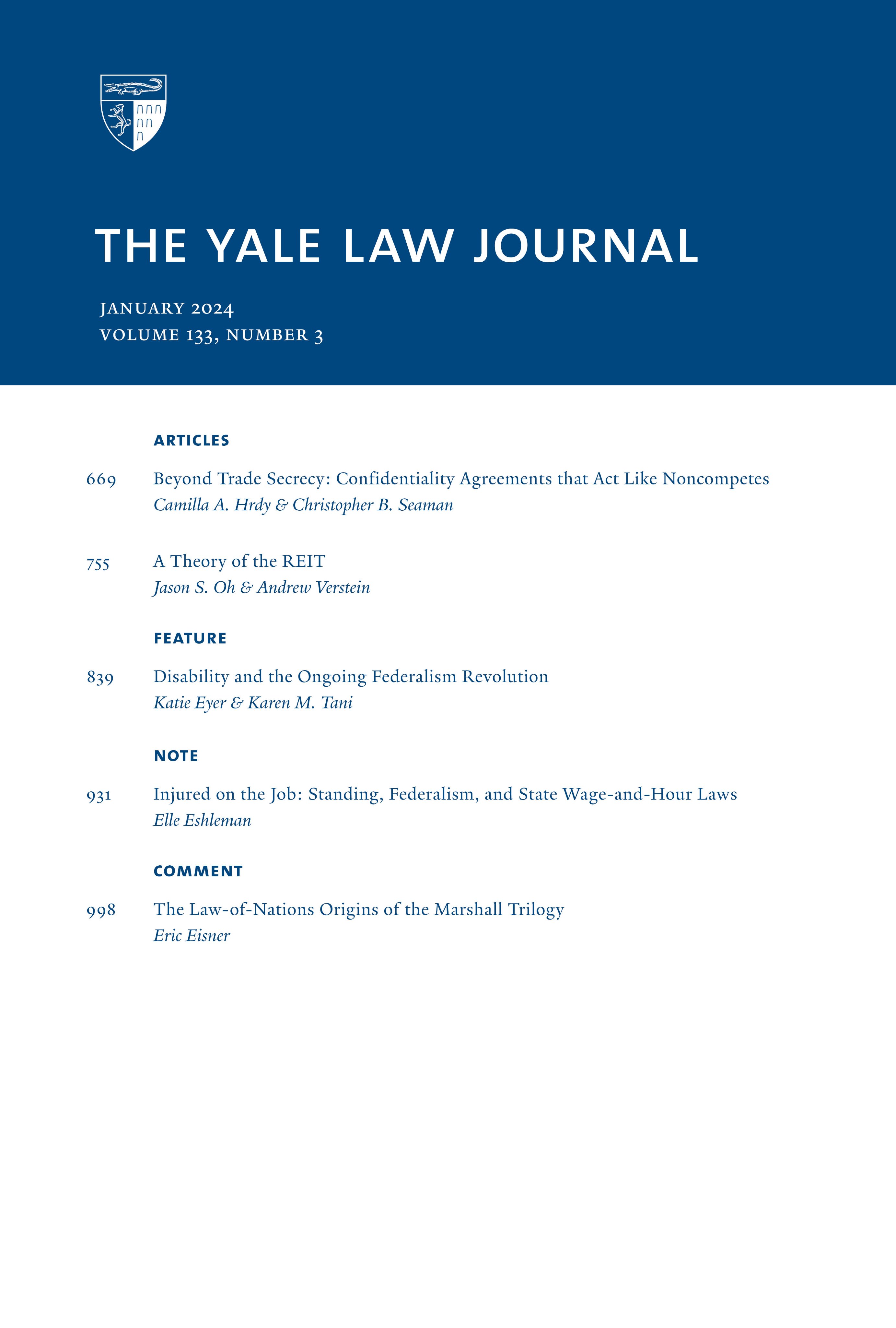布克之后的量刑组织
IF 5.2
1区 社会学
Q1 LAW
引用次数: 4
摘要
这是我的行为。在美国诉布克案(United States v. Booker)中,最高法院认为,法院根据法官认定的事实和强制性量刑准则对个人进行判决,侵犯了个人接受陪审团审判的权利。然而,最高法院从未确切地决定组织何时有权获得刑事陪审团。因此,布克对组织量刑准则的全部含义尚不清楚。尽管如此,对法律的仔细解读表明,至少在大多数联邦刑事案件中,组织有权拥有陪审团,因此布克的逻辑应该适用于组织准则。本文章由计算机程序翻译,如有差异,请以英文原文为准。
Sentencing Organizations After Booker
A B ST R ACT. In United States v. Booker, the Supreme Court held that courts violate individuals' right to a jury trial when they sentence individuals using judge-found facts in combination with mandatory sentencing guidelines. The Supreme Court, however, has never decided exactly when organizations are entitled to a criminal jury. Accordingly, Booker's full implications for the organizational sentencing guidelines are not immediately clear. Nonetheless, a careful reading of the law suggests that organizations are entitled to a jury in at least most federal criminal cases and thus that Booker's logic should apply to the organizational guidelines.
求助全文
通过发布文献求助,成功后即可免费获取论文全文。
去求助
来源期刊

Yale Law Journal
LAW-
CiteScore
4.50
自引率
6.20%
发文量
0
期刊介绍:
The Yale Law Journal Online is the online companion to The Yale Law Journal. It replaces The Pocket Part, which was the first such companion to be published by a leading law review. YLJ Online will continue The Pocket Part"s mission of augmenting the scholarship printed in The Yale Law Journal by providing original Essays, legal commentaries, responses to articles printed in the Journal, podcast and iTunes University recordings of various pieces, and other works by both established and emerging academics and practitioners.
 求助内容:
求助内容: 应助结果提醒方式:
应助结果提醒方式:


